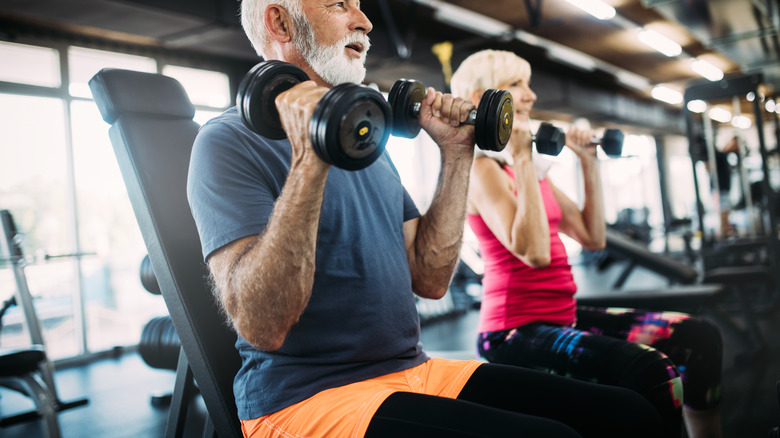Could Exercise Be The Secret To Staying Sharp As You Age?
By now, most of us have heard about the benefits of exercise. Regular physical activity boasts a number of rewards for people of all ages. Of course, you gain strength when you exercise, but there are other advantages that affect all areas of your life. The National Institute on Aging explains that being active might prevent certain diseases such as heart disease, stroke, arthritis, and certain types of cancer. It also helps keep your weight and blood pressure under control. Furthermore, exercise helps improve your balance, which lowers your risk of falling.
You might not think that exercise provides any emotional benefits, but it does. Physical activity has the ability to reduce the risk of depression in children and adults, according to the Department of Health and Human Services. Exercise also helps decrease long and short-term anxiety in adults as well as improve their quality of sleep. But that's not all. Physical activity can give your brain a boost and this might be the secret to staying sharp as you age.
Exercise improves your brain health
Physical activity offers long and short-term advantages when it comes to cognitive health. A study published in the journal JMIR Publications demonstrated that physical activity improves brain performance. The study followed 90 participants, aged 50 to 74, who took thinking tests on days that they exercised and days they were not as active. The results showed that test scores were better on exercise days.
Other benefits include a reduced risk of dementia. In adults over 50, exercise improved attention, memory, processing speed, and the ability to retrieve and use information acquired over time (per the Department of Health and Human Services). If you're wondering how exercise helps the brain, it begins with an increased blood flow, which feeds the brain, according to BYU College of Life Sciences. In simple terms, blood circulation gives your brain the nutrients it needs to function.
To help your brain reap the benefits of physical activity, the Department of Health and Human Services recommends adults should get 150 to 300 minutes of moderate exercise or 75 to 150 minutes of vigorous activity per week.


